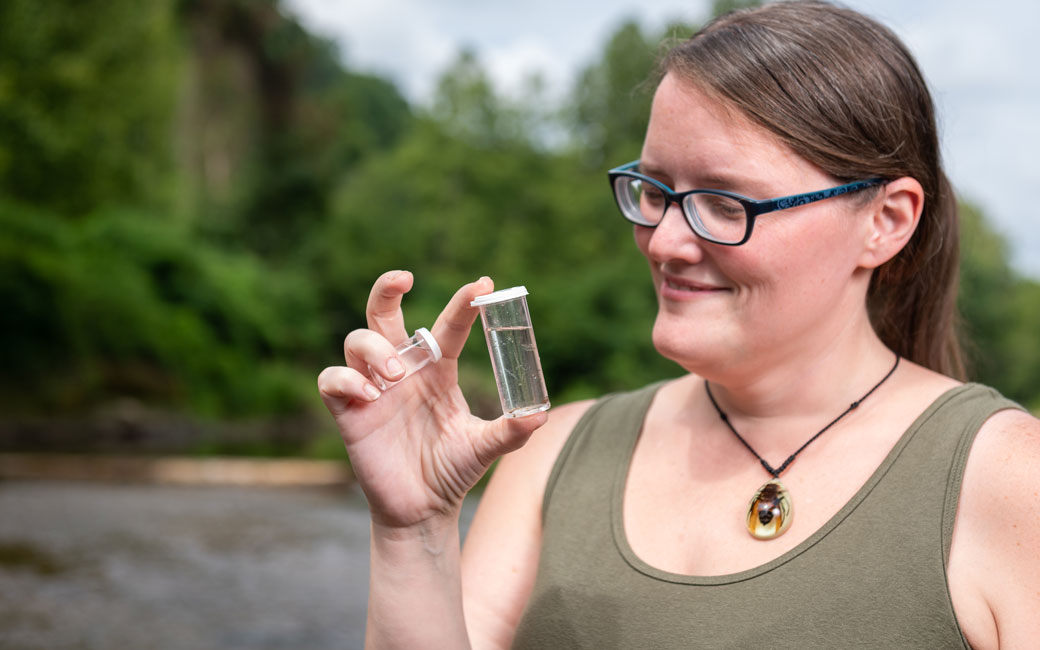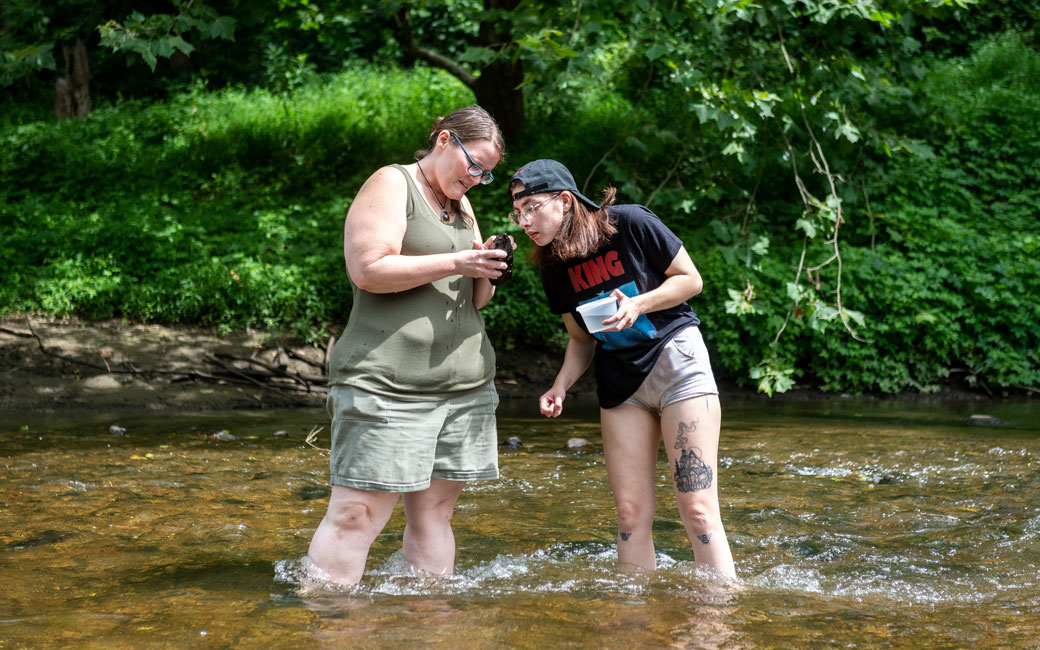Using creepy crawlers in the classroom
Whether through research or her lesson plan, associate professor Faith Weeks likes to bring the bugs
By Kyle Hobstetter on December 6, 2022

It’s not hard to find Faith Weeks’ classroom inside the Towson University Science Complex. That’s because it usually has an audience peeking in.
With a window full of insects, plants and amphibians, it’s not a surprise the associate biology professor’s office has become a favorite stop on prospective student tours.
Her classroom/lab on the Science Complex’s third floor now features more than 35 species. Now she can share her insects with the entire campus community.
“Bugs are just so fascinating,” Weeks says about her passion for entomology, the study of insects. “There are bugs that can hold air under their wings and dive forever. Baby dragonflies can unhinge their jaws to grab food and pull it toward them. [Bugs] have figured out every climate, figured out flight, know how to dive and know how to be flexible.
“They’re just fascinating creatures.”
And while bugs are usually her classroom stars, Weeks has also featured them in her research. The past two summers, she worked with a Baltimore City Community College student to use insects to test water quality in several Maryland bodies of water.
But instead of using probes and pipettes, they collected and studied the bugs found nearby to identify the pollution level and quality of different water areas.
“The insects living there tell us a bigger story—what’s happened over time,” Weeks says. “Based on what insects and invertebrates I find there, I can tell you about the quality of the water because the (insects) are sensitive to different levels.”
The research was part of the Bridges to the Baccalaureate program, which recruits underrepresented minority students from local community colleges to work as research interns with Towson University faculty.
Weeks, who loves doing research, was excited to work with a student and get them interested in pursuing a bachelor’s degree in the STEM field. What better way to do that than with a research project that features her favorite subject: bugs.
“I have a student who was here all summer, and I needed to do some research with her that is interesting,” Weeks says. “So, I thought back to research I've done before and thought I can take her outside all summer long; walk through nice, cool streams [and] take her to beautiful places and collect bugs.
“I loved it because I watched how she gets excited standing in a stream, pulling up a rock and asking for a vial—it reminds me of why I got into this profession.”

Weeks is one of the biology department’s science education professors. Through her classes, those who are interested in teaching elementary or middle school can learn how to bring science into their classrooms.
“I teach future teachers, and these future teachers are going to have to go out there and teach science on their own,” Weeks says. “So when I work with our education majors, I try to be exciting and show them that science is crazy, doable and not that complicated.
“I love seeing their faces when it clicks, and they get excited about the weird things in the world,” Weeks adds. “I tell my students, ‘My goal is not to make you a scientist. My goal is for you to walk out of here and say ‘I can teach science, and I’m excited to teach science.’”